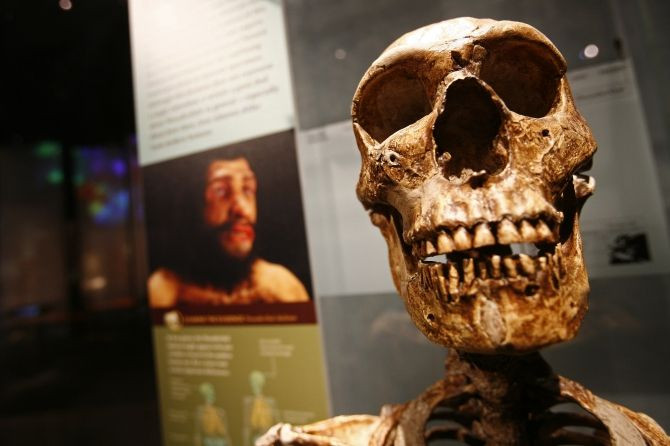Infectious Diseases May Have Helped Humans Evolve

One mystery about human evolution is how modern man came to be. The answer may lie in our ancestor's ability to protect themselves from deadly infectious diseases according to a new study.
A big question about the evolution of man, and no we are not talking about a missing link like Bigfoot, is how modern humans emerged from a dangerous bottleneck nearly 100,000 years ago. A new study is showing how one mutation may have helped protect a group of our ancestors from certain deadly diseases, giving Homo sapiens the edge to emerge from this bottleneck.
The genetic study of our evolution was led by Dr. Ajit Varki, co-director of the Center for Academic Research and Training in Anthropogeny at the University of California, San Diego. Turning off two genes in particular may be the reason why the ancestors of modern humans survived the bottleneck. The inactivated genes could not be the target of from E. coli K1 and Group B Streptococci which helped protect our ancestors.
According to the researchers, E. coli K1 and Group B Streptococci are the leading causes of meningitis and blood poisoning (sepsis) in babies and fetuses. In order for group survival, a larger number of infants need to survive and in order to do that, two genes needed to be turned off. The infectious diseases were binding to the genes which could alter how the immune system responded to the diseases.
One gene, Siglec-13 was not part of the human genetic sequence but could be found in our evolutionary cousins, the chimpanzee. The second gene, Siglec-17, was modified to produce a protein that the infectious diseases could not bind to. In order to test this theory, the researchers reactivated the genes. Modern strains of E. coli and Group B Streptococci recognized the two restored genes and were able to bind to them.
These two genes could play a large role in the evolution of humans. A bottleneck had occurred around 100,000 years ago that reduced the population of our ancestors to around five to 10,000, note researchers. The reason for this bottleneck is unknown; it could have been due to several combined factors, such as extreme climate change or a disease outbreak. The response to infectious diseases by turning off two genes could have protected a small group of Homo sapiens who then passed this mutation to their offspring and may be one factor in the evolution of modern ancestors, conclude researchers.
The study was published in The Proceedings of the National Academy of Sciences.



























